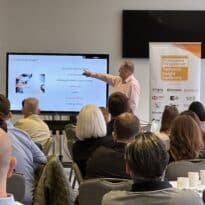Pensions remain clouded in jargon, with almost one in five (18%) pension holders admitting they don’t understand a single pension term, new research has revealed.
A survey of working-age pension holders across the UK by Wealthify found that even the most recognised phrase “pension pot” is understood by fewer than half of people (44%).
The term “salary sacrifice” came second with 27%, followed by “annuity” at 25% and “pensions dashboard” at 24%.
At the bottom of the list are acronyms including “BSP” (2%), “AE” (3%), “MPAA” (3%) and “VfM” (3%), alongside terms like “decumulation” (4%) and “crystallised” (6%).
The research found that on average, pension holders understand just 17% of full-word terms and 6% of acronyms.
Wealthify said the lack of knowledge also extends to terms that have dominated the headlines in recent years, with fewer than one in six people (15%) understanding what “triple lock” means, while just a quarter (24%) understand what the upcoming “pensions dashboards” are and only 6% recognise “megafund.”
Jessie Kwok, chief investment officer at Wealthify, said: “Pensions are one of the most important financial products most of us will ever have, yet the language around them is often confusing and inaccessible.
“Our research shows that terms like ‘triple lock’, ‘drawdown’ and even ‘pensions dashboard’, phrases that feature regularly in headlines, are still poorly understood by most pension holders.”
Kwok warned that a lack of knowledge of the basics will make people more likely to delay contributions, overlook valuable allowances, or miss opportunities to make their savings work harder.
Kwok added: “It isn’t that people don’t care, in fact, our research shows thousands are actively looking for explanations every month, but they’re not finding clear and simple answers they can trust.
“If we want people to feel confident about retirement planning, we, as an industry, have to be proactive in removing barriers rather than adding them. That means simplifying jargon and being transparent. Doing this will help people make informed decisions and give them the confidence to take control of their financial futures.”
Main image: matthias-heyde-8HLMLrkyLvE-unsplash






























